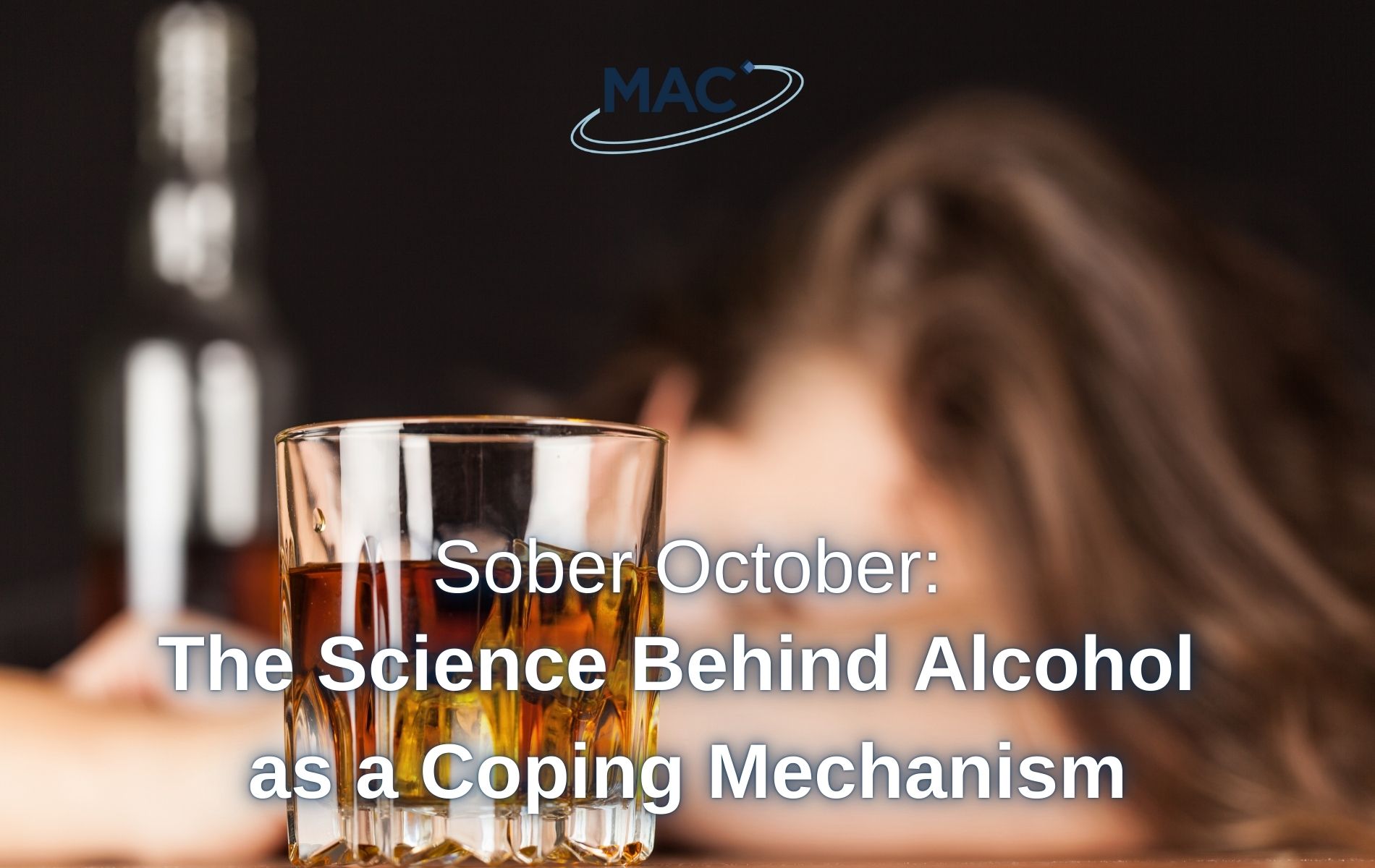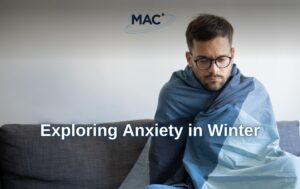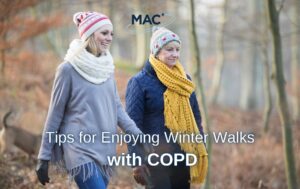Different formulations of alcoholic drinks have existed for millennia, with the earliest alcoholic beverage estimated from circa 7000–6600 BCE1. Alcohol consumption is prolific across the world, and the UK is in the top 15 countries for alcohol consumption on average in 20192. In England in 2022, 57% of those aged 16 and over drank up to 14 units of alcohol each week, and 24% drank more than 14 units3. While 60% of adults in England in 2023 drank at low-risk levels, 3% consumed at high-risk levels and 3% reached possible dependent levels3. This Sober October, we are looking at the science behind addiction and how anxiety and trauma can lead to alcohol dependence.
What is addiction?
Addiction is a relationship between a person and an object or activity wherein the person does not have control over doing, taking, or using something to the point of potential harm4. Most people tend to associate addiction with alcohol, drugs, gambling, and/or smoking, but there are many different types of addiction, such as food, shopping, sex, the internet, and more4. Addiction is a chronic disorder, and recovery is often a lifelong process where relapse is an ever-present threat.
What causes addiction?
Addiction happens when the reward pathways in the brain become overwhelmed in a way that can grow chronic and sometimes permanent5. The reward circuit activates in response to stimuli that result in a positive or desirable outcome and plays a critical role in behaviour when seeking out desired stimuli6. Dopamine is a signalling chemical produced in the brain that is central to this process, where increased levels lead to a positive feeling, and decreased levels create the opposite7.
Addictive substances like opioids, nicotine, and alcohol cause a surge of dopamine greater than the natural amount5. Your brain associates this surge with the addictive substance, and over time – with continued use – the brain adapts itself to the frequent stimulation and becomes less sensitive to dopamine8. Achieving the sensation is of increasing importance, but you develop a tolerance and need more to achieve the same rewarding feeling5. Being without what you crave causes withdrawal symptoms, often referred to as a ‘come down’ or a ‘crash’, which can be very unpleasant. As a result, it often feels easier to maintain the cycle of addiction4.
Alcohol addiction warning signs
Realising you have a problem with alcohol is an important first step in your journey towards getting help and getting better. It may be necessary to seek help if you:
- Frequently feel the need to drink
- Have been in trouble or continue to get in trouble due to your drinking
- Have been warned by the people around you about how much you are drinking
- Feel your drinking is causing issues9.
If you are dependent on alcohol, you will find it challenging to stop. This may mean that you struggle to cut it out completely or reduce your consumption, or that you struggle to stop at just one drink.
Getting help with addiction
If you, or someone you know, are having problems with alcohol, there are many resources available to you, locally and remotely. Your GP is your first point of contact for alcohol addiction and can provide confidential advice and refer you to further support services. There are also local services no matter where you live that offer support for alcohol problems, such as Alcoholics Anonymous. Check your local authority website for what is available in your area. If you would prefer to remain anonymous, there are confidential helplines that you can access:
- Drinkline (call 0300 123 1110) – weekdays 9.00am to 8.00pm, weekends 11.00am to 4.00pm
- Alcoholics Anonymous (call 0800 9177 650, email help@aamail.org, or live chat via their website) – available 24/7
- Samaritans (call 116 123, or email jo@samaritans.org) – available 24/7 if you need urgent support10
Those with clinical alcohol dependency can experience serious withdrawal symptoms, including death if they suddenly stop drinking10. If you experience any of the following symptoms after a period of drinking and while sobering up, you should consult your GP or local community alcohol service, and should not totally, suddenly stop drinking:
- Fits
- Shaking hands
- Sweating
- Hallucinations
- Depression
- Anxiety
- Difficulty sleeping10
How can trauma lead to addiction?
Many people may perform potentially addictive behaviours, such as drinking large quantities of alcohol, to avoid physical and/or mental discomfort. Post-traumatic stress disorder (PTSD) and alcohol misuse often co-occur11, and people living with PTSD are approximately four times more likely to be affected by alcohol use disorders12.
If you have experienced or witnessed a traumatic event, you may undergo an unending onslaught of upsetting symptoms and may turn to alcohol as a coping mechanism for this. Alcohol may offer a temporary relief, a feeling of control over the memories, or a way to numb the pain12. However, self-medicating can perpetuate a vicious cycle. Alcohol is a depressant and can intensify feelings of anxiety and depression. As those feelings intensify, so does the need to drink12.
Living with PTSD?
People might think a traumatic event is left in the past, but with PTSD it’s still very much in your present. At MAC we understand how hard it can be. We are looking for volunteers with a suspected or confirmed diagnosis of post-traumatic stress disorder/PTSD to take part in a clinical trial. If you are aged between 18 and 65, with a diagnosis or symptoms of PTSD, you may be eligible. To find out more information and register your interest, visit our PTSD study page.
References
1 Penn Museum – The Earliest Alcoholic Beverage in the World | Research – Penn Museum
2 WHO – Alcohol, total per capita (15+) consumption (in litres of pure alcohol) (SDG Indicator 3.5.2)
3 Drinkaware – Alcohol Consumption UK
4 NHS – Addiction: what is it?
5 Yale Medicine – How an Addicted Brain Works > News
6 PMC – The Brain’s Reward System in Health and Disease
7 PubMed – The reward circuit: linking primate anatomy and human imaging
8 Harvard Health – Brain plasticity in drug addiction: Burden and benefit
10 Alcohol Change UK – Get help now
11 PMC – Post-traumatic stress disorder and alcohol misuse: comorbidity in UK military personnel




